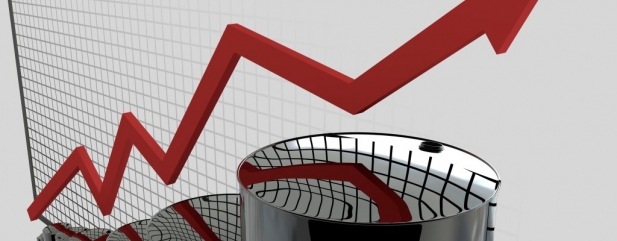Archived article
Please note that tax, investment, pension and ISA rules can change and the information and any views contained in this article may now be inaccurate.
The next OPEC meeting is crucial for the direction of oil prices

In just over two weeks oil producers’ cartel OPEC will hold its latest meeting in Vienna (22 Jun), an event that could have a major influence on the direction of oil prices.
Oil prices have already started to retreat from recent highs above $80 per barrel ahead of this summit. Why? There is speculation leading member Saudi Arabia could boost its production amid disruptions to supply in Venezuela and Iran.
WHAT IS OPEC AND WHY DOES IT MATTER?
The Organisation of the Petroleum Exporting Countries (OPEC) is an intergovernmental organisation of 14 oil producing countries. The cartel is dominated by Saudi Arabia.
In 1973, during the Yom Kippur war when Israel lined up against Egypt and Syria, Arab members of OPEC refused to ship oil to western countries which had supported Israel. This prompted a four-fold increase in the price of oil.
Though its influence has waned in the intervening 40-plus years it still exerts a measure of influence over the short and long-term direction of the crude oil market – controlling around 80% of the world’s proven crude oil reserves.
OPEC sets quotas, which determine how much member countries should produce, although compliance is often a long way short of 100%.
WHAT ARE PEOPLE EXPECTING FROM THE MEETING?
In the spring it was suggested the Saudis would be comfortable with an $80 per barrel oil price but with oil now around this level and amid complaints from the US, there are suggestions the Saudis may respond by increasing output. That could push the price down.
US president Donald Trump explicitly criticised the group in a Tweet on 20 April when he described ‘artificially’ high prices as ‘no good’ and said they ‘will not be accepted’.
Economic turmoil in Venezuela and the US exit from the nuclear deal with Iran, bringing with it the renewed threat of sanctions, is putting pressure on oil production in both countries.
The Saudis are the ones with the spare capacity to boost output, but they may face opposition from the rest of the cartel who have little to gain from falling oil prices.
They may also look to partner with Russia again, having announced coordinated cuts back in November 2016.
Broker Cantor Fitzgerald comments: ‘Russia is reported to have exceeded its agreed production quota last month, as both it and Saudi Arabia seek to fill the gap in cartel supply lost from the collapsing Venezuelan economy.
‘With fears that OPEC may abandon the production quotas at the next meeting, some investors are worried that this would unleash a wave of crude onto the markets, which coupled with the rise in US production, could push the market back into an oversupply scenario once again.’
The oil price would probably fall if the market becomes oversupplied again. This is significant for UK investors as the flagship FTSE 100 index has a heavy weighting towards BP (BP.) and Royal Dutch Shell (RDSB) whose revenue, profit and cash flow is at least in part determined by the price of crude. (TS)
Important information:
These articles are provided by Shares magazine which is published by AJ Bell Media, a part of AJ Bell. Shares is not written by AJ Bell.
Shares is provided for your general information and use and is not a personal recommendation to invest. It is not intended to be relied upon by you in making or not making any investment decisions. The investments referred to in these articles will not be suitable for all investors. If in doubt please seek appropriate independent financial advice.
Investors acting on the information in these articles do so at their own risk and AJ Bell Media and its staff do not accept liability for losses suffered by investors as a result of their investment decisions.
Issue contents
Big News
- BT in charm offensive to get investors back onside
- Markets are climbing the ‘wall of worry’
- Battle for control at Stobart and Petropavlovsk
- What does the Government sale of RBS stake mean for investors?
- Why Hotel Chocolat continues to be a sweet investment
- Bodycote boom time raises the fear of inevitable bust

 magazine
magazine










